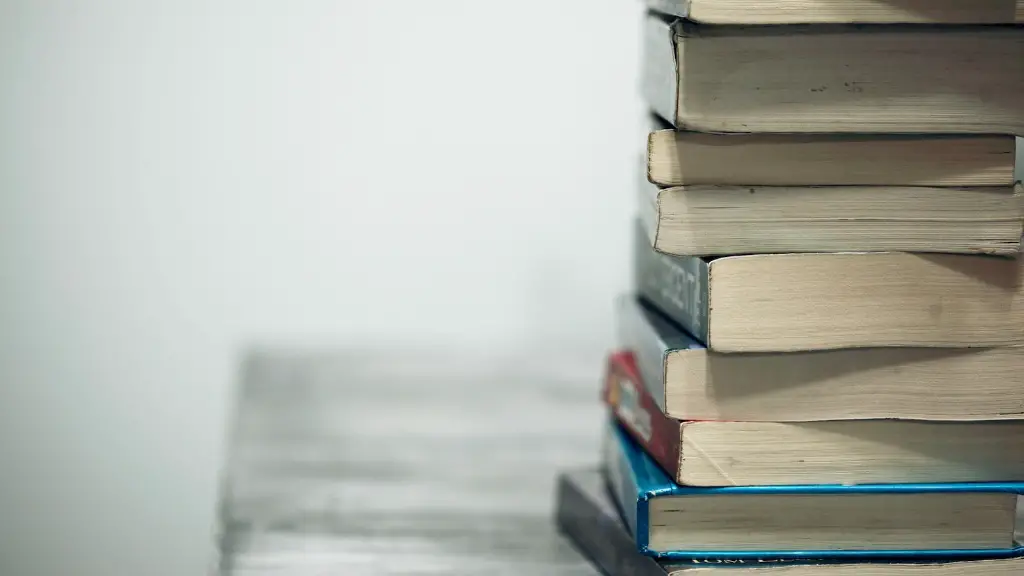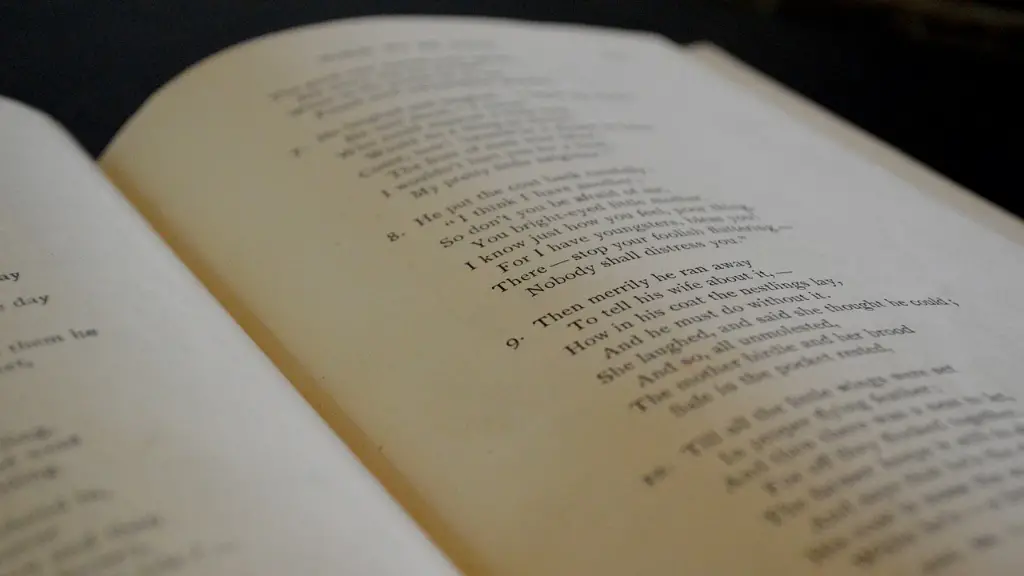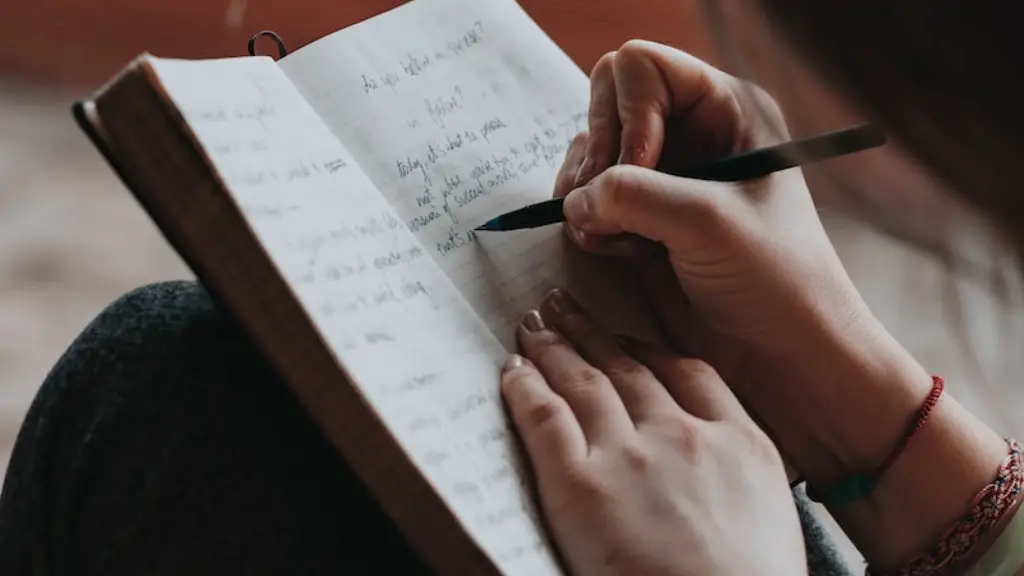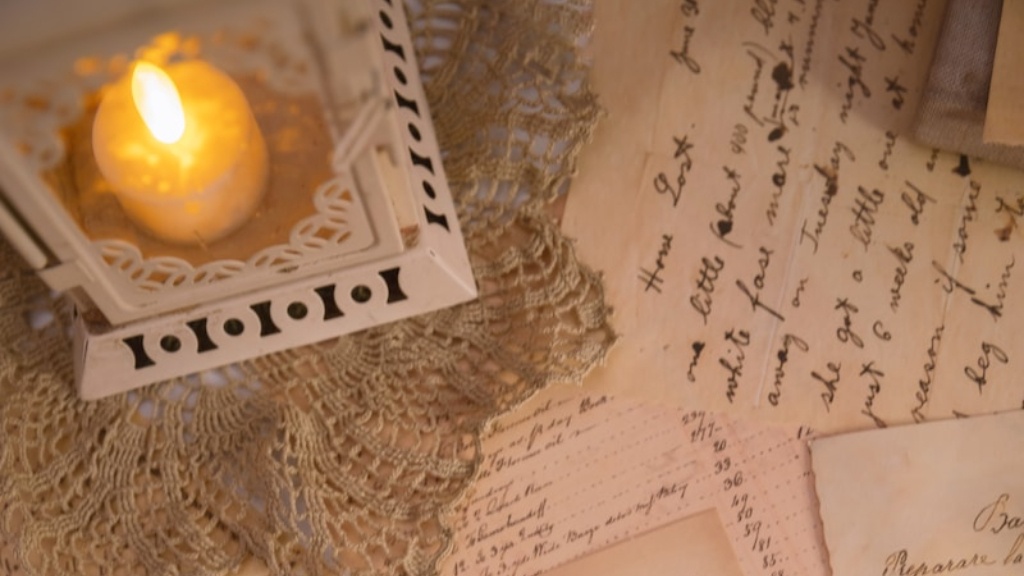Aesthetic Appeal
Both poetry and prose have a strong aesthetic appeal. Both employ the use of metaphors, symbols and imagery to convey a specific emotion or message, although the poetic form is traditionally more abstract. In poetry, the intensity of feelings or sensations is often heightened by rhythmic and musical elements – layering of sounds, pauses and repetition. Prose, on the other hand, relies more on similes and straightforward descriptions. Through this, both forms attempt to depict reality and express the beauty of language.
Though both forms of literature can use a variety of linguistic styles, in order to capture the reader’s imagination and stir their emotions, it is particularly in poetry where figurative language is utilised more heavily. Poets are especially deft in the use of complex and often cryptic words that convey multiple meanings and emotions. Prose generally uses a direct narrative style and tries not to confuse the reader, steering away from these ambiguous interpretations.
Variety of Forms
Both poetry and prose also come in a variety of forms and genres. Poetic forms range from lyrical, sonnets, elegies, odes and haikus; while prose includes novels, short stories, essays and even reportage. Whether poetry or prose, each genre displays its own intrinsic qualities, characteristics and appeal. Furthermore, both kinds of writing can be either narrative, or non-narrative.
When it comes to the structure of prose, there is a much higher level of consistency, with the narrative arc having a clearly defined beginning, middle and end. In poetry, however, there is not such a systematic structure, with poets instead opting for imagery, symbols and free-flowing words to make their point. Despite this, certain poetic works will still attempt to achieve a narrative arc, and can provide a satisfying dramatic structure for readers.
Mutations of Language
The ways in which language is mutated plays an important role for both poetry and prose. The plethora of literary devices available allows for much expression in both forms of language; either abstract, figurative or both. Prose typically seeks to communicate a more concise and direct meaning, exploring further the narrative arc and its characters, while poetic language tends to be far more layered in terms of symbolism, metaphors and allusions, often inviting the reader on a more abstract journey of discovery.
A poet has much more play in the manipulation of language, though a spoken word poet still needs to deliver a powerful and convincing message or narrative even if the form is unorthodox. While a prose writer can still use such devices, the overall form and structure for both reader and writer is much more defined.
Evoking Emotion
Both poetry and prose aim to evoke certain emotions from a reader. Whether this be sorrow, joy, empathy or fear, readers expect to feel something while they are engaging with the work. Prose presents the reader with an array of feelings due to its direct and descriptive nature, drawing the reader into the lives of the characters and furthering their understanding of an event or situation.
Poetry equally allows the reader to relate to the feelings conveyed by the poetic devices such as similes, metaphors and symbols. Similarly, the rhythm and sound of the words can help to bring alive the imagery of the piece and can also control the pace at which the reader interprets and engages with the work. Poetry guides and manipulates the reader into devoting their attention to the story being presented.
Creating a Visual Landscape
The ability to create vivid and powerful imagery is key to both poetry and prose. However the way in which this is achieved is somewhat different. Prose typically takes on a very descriptive nature, allowing the reader to use their own imaginations to place themselves in the scene. Whereas in poetry, the use of symbols, metaphors and sound bite words conjures up new images and visuals for the reader.
Poets and prose writers will pay special attention to the way the reader moves through the written text. Word choices, choice of grammatical and syntactical structures will all factor into the way the reader pictures the scene. Both forms of literature provide the reader with their own unique version of the story, creating a unique relationship with audience.
Examining the Human Condition
At the core of both poetry and prose lies the examination of the human condition. With both forms of literature, the authors are providing insight into the depths of our nature, offering us a window into our innermost wishes and fears. Both poetry and prose strive to engage us on a deeply emotional and spiritual level, beyond our mere physical selves. The idea of identity, suffering, loss and hope are all explored, leaving us to come to our own conclusions.
Using a combination of both abstraction and clarity, poets and writers seek to discover how we relate to each other and question how far our emotions and beliefs can be expressed through language. Examining what makes us who we are, both forms strive to convey a deeper, more meaningful idea of life.
Evolving Language
The language utilised in both poetry and prose is key for interpretation and response. Using creative language, authors must decide in what direction they are going to take their reader. In poetry, language is used in an unrestricted way, with words and phrases fresh, startling and often lyrical in nature. Whereas in prose, language is more straightforward and aimed at creating realism.
Both poetry and prose have, of course, evolved over time with each new generation adding their own unique style. Poets in particular have been innovative with language, adding slang, musical inflections, breaks in rhythm and even street language at times. This has allowed for a much broader and more varied range of expression and interpretation.
Defying Structure
The idea of impermanence is of great importance for both poetry and prose. Prose here has taken a more serious approach to this, providing stories of liberation and escape from traditional forms of writing. The novels and short stories of the 21st century have largely done this, demonstrating that it is possible to create a powerful narrative without the traditional three act structure.
Poetry has also explored the same themes, again blurring the lines between traditional poetic structure and free-flowing expression. Here, it is no longer a matter of rhyme and rhythm that gives the poem strength but instead its own version of freedom. Havoc and mischief can thus be caused with language, challenging the preconceptions of literature.
Exploring Dualistic Nature
Both poetry and prose take contrasting perspectives on the same themes and stories, leaving the reader to decide which one they prefer. Poetry can be seen as the soul or the heart of a story, providing meaning and emotion side by side, demonstrating the dual nature of our lives. Prose, in contrast, attempts to convey a true representation of our realities, using its descriptive popularity to enlighten the reader.
Both forms use language to explore the human experience, but the results are vastly different. While prose strives for a more accurate account of events through an almost documentary style, poetry offers up a much more abstract story, translated through the lens of a poet’s imagination. Here, the reader is invited to experience a range of feelings, thought processes and emotions.
Speaking to Our Inner selves
Both forms of literature have the power to reach our souls and make us question what we believe and how we think. In the case of poetry, the language employed has the potential to transform our beliefs and rewrite our understanding of life. Poets often use their work to express their own personal understanding of the world through stories that pertain to the specific thought process.
Similarly, prose uses language to achieve the same result. Here, authors will often explore themes of transformation, attempting to depict how these changes in our lives take place. Both intention and affect can be felt, and in some cases, authors will split their work in two, allowing for an almost two-dimensional exploration of the possibilities in life.
Exposing Human Nature
Through their use of complex and often cryptic language, both poetry and prose have the potential to expose the inner nature of mankind. Poetry in particular has explored the depths of the human psyche, providing us with a range of feelings and possible interpretations. Here, language is used as a weapon, bringing to the surface the secret desires of a poet as they navigate the complexities of our lives.
Prose, meanwhile, offers an almost third person perspective, attempting to tell a clear story whilst exposing the very nature of our existence. Here, the reader can observe and experience events as if they were a part of the world being written about, gaining a deeper insight into how and why things happen as they do.
Exploring Complexity
Through their ability to use somewhat complex language, both poetry and prose can allow the reader to explore a variety of issues from different perspectives. Whether it be through a monologue of a character, or a sonnet that speaks of the fall of a great land, the use of multiple interpretations and symbols can provide a window into the mind of a writer.
Due to this, both forms of literature can provide a far deeper exploration of different aspects of our society, allowing us to form our own opinions on the matter. Therefore, both forms of literature are important for us in order to gain a better understanding of our own lives and the lives of those around us.
Questioning Society
The power of both poetry and prose to open readers’ minds to new and often challenging perspectives is also a key component in their success and longevity. Here, readers can explore issues of morality and politics as explored through the use of different language and tonality. Whether it be through the lyrical nature of poetic words, or the more pointed narrative of prose, questions on a wide range of topics can be asked.
Poets and authors have the potential to open up our eyes to the injustices of the world, exploring how things could be, or how they should be. Through this, readers can gain insights into stories and concepts that are often not discussed in mainstream society, allowing us to become more aware and empathetic.



